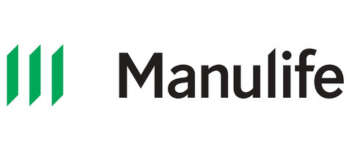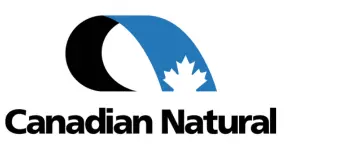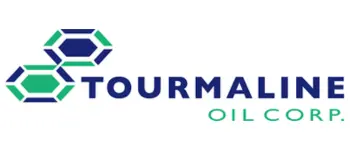Value Being a Well-Established Investment Strategy, Let’s Look at Some Canadian Value Stocks Today
Key takeaways
Strong Cash Flow is Key: Value stocks like Canadian Natural Resources, Manulife, and Canadian Tire generate consistent cash flow, allowing them to support dividends, buybacks, and reinvestment even in uncertain markets.
Diversification Helps in Volatile Times: These stocks span multiple industries—energy, retail, finance, and manufacturing—showing that value opportunities exist across different sectors, each with its own economic drivers.
Valuations Remain Attractive: Many of these companies trade at reasonable price-to-earnings ratios, offering solid upside potential as the market re-evaluates their long-term stability and earnings power.
3 stocks I like better than the ones on this list.Value investing is one of the most popular investment strategies of all time. Many of the most successful investors, such as Benjamin Graham and Warren Buffett, are value investors.
Unlike growth investing, which is a strategy directed at paying a higher premium now for growth in the future, value investing addresses inefficiencies in the stock market. It allows investors to buy stocks at a discount to their “intrinsic value,” which is related to the future cash flow the investment is expected to produce.
As mentioned, this is different than a growth stock and growth companies in general, as investors are generally speculating on future profitability that has not come to fruition. Many popular stocks like Amazon, Tesla, Alphabet, and Apple are growth stocks, even with Apple paying dividends.
I won’t get into the intricacies of discounted cash flow analysis. However, this article will identify some of the most promising Canadian value stocks.
On this list, we want Canadian stocks trading at strong valuations relative to their future growth, a more extended outlook than other short-term strategies such as day trading stocks.
What criteria must be met to make it on this list of top Canadian value stocks?
Value and “cheap stocks” are entirely subjective. Depending on a company’s future outlook, you may have a completely different price target than an analyst or friend.
You may think a company like Microsoft is high-quality, while an analyst might be bearish. That is the fantastic thing about investing. Price predictions for individual stocks are based on outlook, and outlook is based on personal opinions.
But for this list of Canadian value stocks, we’ll have some criteria we follow regarding metrics. They must trade at an attractive price-to-earnings or price-to-free cash flow ratio, often below historical valuations and the industry average. A low price to book, or P/B ratio, is also helpful. However, we’d consider a low PE ratio to be more critical.
There will also need to be earnings and sales growth. Many stocks will be considered value options because of a decline in stock price and a high dividend yield. However, an earnings decline or a material shift in the overall business could be the reason for the decrease in share price and that high yield.
With that said, let’s get started. Keep in mind these stocks are in no particular order.
What are the best value stocks in Canada right now?
Canada’s largest life insurance company
Manulife Financial (TSE:MFC)

Manulife is a global financial services company specializing in insurance, wealth management, and investment solutions. It operates under the John Hancock brand in the U.S. and has a strong presence in Asia, where it sees significant growth potential. The company generates steady income from premiums and investment management, making it a defensive yet profitable player in the financial sector.
P/E: 15.3
5 Yr Revenue Growth: -10.7%
5 Yr Earnings Growth: -0.1%
5 Yr Dividend Growth: 9.1%
Yield: 3.7%
One of Canada’s largest oil producers
Canadian Natural Resources (TSE:CNQ)

Canadian Natural Resources is a major player in Canada’s oil and gas sector, known for its diversified asset base across oil sands, heavy crude, and natural gas. The company has one of the lowest-cost operations among peers, making it resilient even during downturns. With strong free cash flow and a shareholder-friendly approach, CNQ is a top choice for value investors.
P/E: 13.9
5 Yr Revenue Growth: 10.5%
5 Yr Earnings Growth: 4.0%
5 Yr Dividend Growth: 22.5%
Yield: 5.4%
Leading manufacturer of recreational vehicles
BRP Inc. (TSE:DOO)

BRP designs and manufactures snowmobiles, personal watercraft, and off-road vehicles under brands like Ski-Doo, Sea-Doo, and Can-Am. The company has a strong presence in North America and continues to expand globally. Known for its innovation and brand strength, BRP offers solid long-term value despite cyclical demand.
P/E: –
5 Yr Revenue Growth: 5.3%
5 Yr Earnings Growth: -%
5 Yr Dividend Growth: 16.0%
Yield: 1.8%
Canada’s largest natural gas producer
Tourmaline Oil (TSE:TOU)

Tourmaline is a major player in natural gas, benefiting from low production costs and strong demand for LNG exports. The company has a shareholder-friendly approach, regularly paying special dividends and maintaining a strong balance sheet.
P/E: 17.4
5 Yr Revenue Growth: 21.5%
5 Yr Earnings Growth: 24.4%
5 Yr Dividend Growth: 23.5%
Yield: 2.5%
Global leader in apparel basics
Gildan Activewear (TSE:GIL)

Gildan manufactures t-shirts, socks, and activewear at a low cost. With strong brand recognition and an efficient supply chain, it remains a top value play.
P/E: 18.3
5 Yr Revenue Growth: 3.0%
5 Yr Earnings Growth: 14.1%
5 Yr Dividend Growth: 8.9%
Yield: 1.8%
Leading fuel and convenience store operator
Parkland Fuels (TSE:PKI)

Parkland Fuels is one of Canada’s largest independent fuel distributors and convenience store operators. The company supplies gasoline, diesel, and propane while also running a growing network of retail and commercial fuel stations across North America and the Caribbean. Parkland has been expanding through acquisitions, improving its convenience store offerings, and focusing on high-margin non-fuel sales to drive profitability.
P/E: 50.4
5 Yr Revenue Growth: 8.9%
5 Yr Earnings Growth: -22.3%
5 Yr Dividend Growth: 3.3%
Yield: 3.9%
Iconic Canadian retailer with diverse operations
Canadian Tire (TSE:CTC.A)

Canadian Tire is one of Canada’s most well-known retailers, offering everything from automotive parts to household goods and sporting equipment. It owns several brands, including Mark’s, Sport Chek, and Helly Hansen, and operates a growing financial services segment through Canadian Tire Bank. Despite challenges in retail, Canadian Tire continues to deliver strong cash flow and has a well-diversified business model that helps it navigate economic downturns.
P/E: 9.5
5 Yr Revenue Growth: 2.4%
5 Yr Earnings Growth: 4.8%
5 Yr Dividend Growth: 11.0%
Yield: 4.7%
Overall, these are some of the best Canadian stocks when it comes to value
There have recently been many more value stocks on the TSX composite index, mainly due to economic circumstances. However, these are certainly some of the best. They have attractive price-to-earnings ratios and solid fundamentals.
There is a nice mix on this list as well. Although there may be multiple attractive opportunities on the TSX today, I decided to switch it up and include financials, oil and gas, retailers, and more. I didn’t want to have too many companies in one specific sector, or else the list would get quite repetitive.


